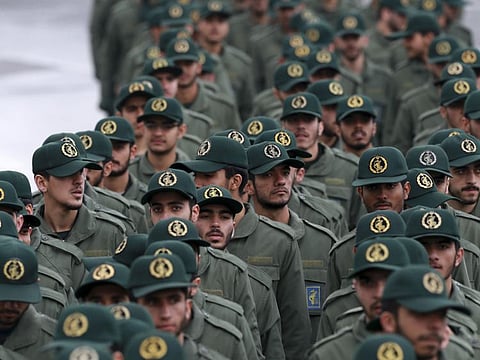Tackling Tehran’s irksome meddling
Economic sanctions are the only effective means of making the Iran regime change its ways

The White House has announced that it is ending exemptions from sanctions for countries that are still buying oil from Iran, and the move comes six months after the administration of United States President Donald Trump decided that it would be re-imposing punitive measures on the regime’s economy, as well as withdrawing from an international agreement over Tehran’s nuclear programme last summer.
Eight nations — China, India, Japan, South Korea, Taiwan, Turkey, Italy and Greece — would be affected by the removal of these exemptions. The move by the Oval Office signals its intent that the regime in Tehran will be held accountable for flouting international principles and continuing to spread sedition and its malign influence from the Bab Al Mandab to the Mediterranean. This approach is necessary — given the insidious nature of the regime in Tehran.
These latest measures, along with others announced by the US — such as designating the Iranian Revolutionary Guard as a terrorist organisation — should make it crystal clear to Tehran that there are consequences for its actions, that it cannot continue to act as a rogue nation, and that its people and economy will suffer until that message is heard and fully acknowledged. In recent months, there have been widespread popular protests against the regime, a fury fuelled by the reality that the money in Iranian pockets is virtually worthless, prices of everyday commodities have significantly increased, and national resources are being squandered in pursuit of a sectarian and misguided foreign policy.
The message to Tehran is that economic sanctions are in place because of the actions of the leadership, that they are working, and that they remain as the most realistic means to ensure the regime reverses course or faces the consequences for its policies and actions.
At the same time, as the so-called moderates in the regime in Tehran were celebrating the signing of that international accord on the peaceful nature of its nuclear policies, it was sending ships laden with sophisticated rocketry and launch systems and technologically advanced sea mines to Al Houthi rebels in Yemen. Its militias hold undue sway in Iraq, its fighters ensure that the misery of ordinary Syrians continues, and it openly interferes in the domestic politics of Lebanon.
The latest measures are both necessary and right to prevent Tehran from destabilising this region further.



